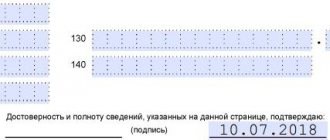Under what conditions may unworked vacation days appear?
The Labor Code determines that each employee has the opportunity to receive annual paid leave only after he has worked for the company for at least 6 months.
Moreover, he can take the full period at once. However, if in the future he has a desire to resign, he will be required to return the funds that were issued for unworked rest days. The law obliges every employer, before the start of the new year, to draw up and implement a vacation schedule for the future period. If an employee goes on vacation immediately at the beginning of the year, a precedent may be created that the vacation will actually be accrued in advance for the entire next year.
After all, before letting an employee go on vacation, the personnel officer calculates the date for which vacation time is granted. In this case, the rule applies that every full month gives the right to 2.33 days of paid rest.
In addition to the main period, additional leave may also be provided by law or internal regulations.
Attention! Since he has already been granted vacation, but in fact these days have not yet been worked, upon dismissal the accountant will have to make a deduction for unworked vacation upon dismissal.
Deduction for vacation used in advance upon dismissal
That is, when calculating compensation for vacation that was not used before dismissal, overpayment of vacation pay is not possible, since they were not previously paid, while compensation payments are calculated based on actual data.
Thus, some judges believe that the withholding for unfulfilled leave upon dismissal cannot be made dependent on whether the employee has sufficient income to cover such debt in the form of the salary paid before dismissal (appeal ruling of the Supreme Court of the Republic of Karelia dated January 11, 2013 No. 33-111/2013).
We recommend reading: How to legalize an extension to a house on your own land under the dacha amnesty
To withhold for unworked days or not
Deducting previously issued vacation pay from your salary is a right, not a mandatory action for the employer. When dismissing an employee of this type, the administration has the right to decide not to withhold excess amounts from him.
However, the format of this decision is not regulated. You can simply tell the employee that there is no need to return excess vacation pay. But since in the event of disagreement, a verbal agreement cannot be confirmed in any way, it is better to document such a decision. For example, you can sign a bilateral agreement that the company forgives the employee’s debt to him for paid vacation pay.
In addition, in such a document it is also advisable to show the amount that is “forgiven” to the employee, as well as the number of vacation days for which it was accrued. At the end of the agreement, the details of each party, signatures and seals (if any) must be affixed.
The employee may decide, at his own discretion, to return the amount in excess of what he received. In this situation, the accountant will not have to make deductions for unworked vacation days upon dismissal.
In what situations can you perform a deduction for these days, and when not?
The Labor Code enshrines the right of the company administration to carry out deductions if the employee received leave in advance and then decided to resign. However, there are situations in which it is prohibited to withhold such amounts from an employee.
These include:
- If the company is undergoing a reduction procedure;
- If an employee resigns due to the liquidation of the organization;
- If the conclusion of a medical examination requires the employee to be transferred to a place with easier work, and dismissal is made due to the lack of necessary vacancies or the employee’s refusal to transfer.
- The director or chief accountant is dismissed due to a change of ownership of the company;
- The employee has to resign due to conscription into the army;
- The contract is terminated due to the death of the employee;
- The employee was issued a medical certificate confirming the impossibility of further performance of work duties;
- The employment agreement is terminated due to force majeure (catastrophes, natural disasters, epidemics, accidents, etc.)
Deduction for vacation used in advance upon dismissal
- When an employee was paid incorrect wages due to a miscalculation and error When an employee is officially found guilty by the judicial authorities of downtime in the company's production When excess wages were transferred due to the employee's unlawful actions
Articles numbered 122 and 115 of the Labor Code of the Russian Federation state that the company must provide its employees with leave of twenty-eight days. These days are due to the employee for a year of work. If an employee has been in his job for the first year, then he has the opportunity to take vacation after six months of work experience in this company. The Labor Code of the Russian Federation does not prevent vacation from being issued by the employer earlier than the specified period. This can also be achieved by agreement of the parties. In case of dismissal before the end of the year, funds may be withheld from the employee.
We recommend reading: How to Receive Compensation for Purchasing an Apartment What Documents?
Deduction amount
According to the Labor Code, the administration has the right to withhold from the employee’s earnings amounts in excess of the vacation pay issued to him. The entire debt can be retained in full, but no more than 20% of it can be withdrawn from any payment.
Most often, a situation arises that an employee is entitled to only one payment - and this is the payment upon dismissal. At the same time, 20% of it is not enough to fully repay the entire resulting debt. Then the employee can express a voluntary decision and transfer the remaining portion on his own initiative to the cash desk or credit it to his current account.
Attention! If he does not want to voluntarily pay the remaining amount, then it can only be obtained by transferring the case to court. However, court decisions in these types of proceedings are extremely contradictory - in two similar cases, the judge can take either side of the case or the other.
The employee went on another vacation. He was accrued vacation pay in the amount of 60,000 rubles. After some time in the same tax (calculation) period, he resigns. The amount of accruals to an employee upon dismissal is 70,000 rubles. Payment for unworked vacation days - 10,000 rubles. To simplify the example, we will assume that the employee did not have any other income and no personal income tax deductions are provided to him.
First, we will determine whether it is possible to withhold the entire amount for unworked vacation days from the payments due to the employee upon dismissal.
The amount due to the employee upon dismissal minus personal income tax is 60,900 rubles. (RUB 70,000 – RUB 70,000 x 13%). The maximum possible amount of deduction from this amount is RUB 12,180. (RUB 60,900 x 20%). In our case, you need to withhold 8,700 rubles. (RUB 10,000 – RUB 10,000 x 13%). Thus, the amount of payments to the employee is enough to withhold the entire amount. As a result, the employee will receive 52,200 rubles.
The calculation of personal income tax amounts from income received by an employee is carried out by the company on an accrual basis from the beginning of the calendar year, with the offset of the amount of tax withheld in previous months (clause 3 of Article 226 of the Tax Code of the Russian Federation). When paying vacation pay (including for unworked vacation days), the employee received income in the amount of 60,000 rubles, and the company, on the basis of clause 4 of Art. 226 of the Tax Code of the Russian Federation lawfully withheld personal income tax from him in the amount of 7,800 rubles. (RUB 60,000 x 13%).
Upon dismissal, part of this income attributable to unworked vacation days is withheld from the payment due to him (that is, in fact, a portion of the vacation pay is returned). In letter dated October 30, 2015 No. 03-04-07/62635, the Russian Ministry of Finance explained that if an employee returns previously paid vacation pay to the employer, such amounts will not be recognized as the employee’s income.
Please note: the tax agent does not have the right to offset the above overpayment against future personal income tax payments, but can only return it (letter of the Federal Tax Service of Russia dated 02/06/2017 No. GD-4-8/ [email protected] ). The fact is that payment of personal income tax at the expense of tax agents is not allowed (clause 9 of article 226 of the Tax Code of the Russian Federation). Consequently, transferring to the budget an amount exceeding the amount of tax actually withheld from the income of individuals does not constitute payment of personal income tax.
Upon dismissal, the employee is accrued income in the amount of 70,000 rubles, personal income tax on which is 9,100 rubles. (RUB 70,000 x 13%). The company must transfer this tax to the budget no later than the day following the day of payment (clause 6 of Article 226 of the Tax Code of the Russian Federation).
Due to the recalculation of vacation pay, the amount of income received by the employee during the period of their payment decreased. Provisions of paragraph 6 of Art. 81 of the Tax Code of the Russian Federation obliges the tax agent to submit an updated calculation of 6-NDFL if distortions are identified in the previously submitted calculation, as well as errors leading to an underestimation or overestimation of the tax amount.
Insurance premiums
The basis for insurance premiums is formed by payments and rewards accrued in favor of an individual from the beginning of the calendar year (clause 1 of Article 421 of the Tax Code of the Russian Federation). In our example, during the vacation pay accrual period, this base was 60,000 rubles. When an employee was dismissed due to deduction for unworked vacation days, the amount of previously accrued vacation pay was reduced and amounted to 50,000 rubles. (60,000 rub. – 10,000 rub.).
We invite you to read: Property disputes and ways to resolve them
In addition, he was awarded payments in the amount of 70,000 rubles. Thus, during the dismissal period, the base for calculating insurance premiums is 120,000 rubles. (50,000 rub. 70,000 rub.). Based on this value, in the month of dismissal the company calculates the insurance premiums payable, minus the amounts of insurance premiums for the previous months of the year (clause 1 of Article 431 of the Tax Code of the Russian Federation).
Please note that in the situation under consideration, there is no need to adjust the base during the vacation pay accrual period. After all, when calculating them, the company acted in accordance with the requirements of the law and did not make any errors or distortions. Accordingly, she should not submit an updated calculation of insurance premiums for this period.
This is confirmed by the explanations given in the letter of the Ministry of Health and Social Development of Russia dated May 28, 2010 No. 1376-19. And although they were given at a time when the procedure for calculating insurance premiums was regulated by the provisions of Federal Law No. 212-FZ dated July 24, 2009, in our opinion, they are still applicable now. The fact is that the procedure for calculating insurance contributions provided for in Chapter 34 of the Tax Code of the Russian Federation is similar to that established by the above law.
Let us note that there are letters from the Federal Tax Service of Russia dated October 11, 2017 No. GD-4-11/20479, dated August 24, 2017 No. BS-4-11/ [email protected] in which tax authorities talk about the need to submit an updated calculation of insurance premiums when withholding for unworked vacation days. But they are talking about a situation where, due to retention, negative values appear in the calculation. We will talk about when this happens below.
Income tax
Vacation pay is taken into account as part of labor costs (clause 7 of Article 255 of the Tax Code of the Russian Federation, letter of the Ministry of Finance of Russia dated July 22, 2016 No. 03-03-06/1/43097). Since they were accrued in accordance with the requirements of the law, their entire amount (including that paid in advance for unworked vacation days) was legally included in the expenses of the reporting period in which the employee was on vacation.
Financiers and tax specialists also think (letters from the Ministry of Finance of Russia dated December 3, 2009 No. 03-03-05/224, Federal Tax Service of Russia for Moscow dated January 11, 2007 No. 21-08 / [email protected] ). At the same time, they indicate that income must include the amount that was previously included in expenses. Thus, on the date of withholding, the company takes into account excess accrued vacation pay in the amount of RUB 10,000. as part of non-operating income.
Labor Code of the Russian Federation on vacation and vacation pay
- inability to perform duties due to illness, injury, refusal to transfer to offered jobs;
- conscription;
- the person who previously occupied this workplace has been restored;
- inability to engage in work;
- death of an employee, employer, recognition of this fact by the court;
- emergency situation due to a natural disaster, major accident in production, transport, war, epidemic;
- liquidation, staff reduction;
- the owner of the organization’s property has changed (the clause applies to the director, deputy directors, and chief accountant).
You need to know this: vacation compensation upon dismissal of a part-time worker.
The debt is withheld from the employee's payroll on the day of dismissal.
Limitation on the amount of deduction: It is allowed to withhold no more than 20% of earnings (Article 138 of the Labor Code of the Russian Federation).
In established cases, the percentage may increase to 50. If the following is withheld: alimony for minor children, compensation for harm to those who have lost a breadwinner, damage caused by a crime, the amount may increase to 70% (Article 138 of the Labor Code of the Russian Federation).
It may happen that the amount retained exceeds the threshold of 20%. For example, they are held on the basis of writs of execution. What to do then?
There are three solutions:
- Invite the quitter to voluntarily return the money to the cash desk, to the company’s account.
- Forgive the debt. The debtor and the organization enter into a written agreement, which stipulates the amount and the number of unworked days. The agreement is concluded to confirm the agreement with documents if disagreements arise between the parties.
- To retain the debt by contacting the judicial authorities (Articles 382, 383 of the Labor Code of the Russian Federation). The court decision most often supports the quitter. The law regulates the collection of debt on the day of termination of the employment contract, and not after.
The first thing an accountant should do when terminating an employee is to check all of his vacation days to determine whether he has any unworked days.
To do this you need to calculate:
- how many years and months the employee worked for the company. In this case, the last month is considered as full if it is worked half or more. If less than half of it is worked, the month is not taken into account in the calculation (clause 35 of the Rules on regular and additional leaves, approved by the People's Commissariat of Labor of the USSR on 04/30/30 No. 169);
- the number of vacation days due to the employee for the entire period of his work in the company (earned vacation);
- the number of vacation days that the employee took during the entire time he worked for the company.
Next, you need to compare the number of vacation days used with the number of days earned.
The law states that employees can be given leave at any time if this does not contradict production needs (Article 122 of the Labor Code of the Russian Federation). As a general rule, the length of service required to provide full leave is six months. Having received 28 days of rest guaranteed by law, in 6 months the employee actually worked only 2 vacation weeks.
The law does not prohibit providing vacation before the 6 months the employee has worked, and in subsequent years of work, vacation can be scheduled even at the very beginning of the working year or at any other time.
If an employee leaves his position before he has already worked the “time off” and paid time, the employer has the right to recover funds spent on vacation pay for such an employee (Article 137 of the Labor Code of the Russian Federation).
NOTE! Withholding vacation pay is the employer’s legal right, but it is not his responsibility. The employee’s opinion is not taken into account; the employer’s decision remains within his own competence.
The law provides for special cases that prohibit an employer from withholding vacation amounts “overspent” by an employee upon dismissal. This is directly related to the reason for dismissal. The employee’s initiative, like most other grounds for dismissal, completely frees the employer’s hands with regard to retention.
- conscription into the Armed Forces or alternative service;
- inability to continue working due to health conditions (based on a medical report);
- reduction in numbers or staff;
- liquidation of an enterprise or termination of the activities of an individual entrepreneur-employer;
- a change in the owner of the organization if the director, his deputy or the chief accountant resigns;
- the need to give way to the main employee who previously occupied this position;
- emergencies, disasters, cataclysms and other force majeure;
- the fact that one of the parties to the contract is no longer alive.
When the accountant calculated vacation pay for issuance, he used information about the average earnings of this employee. This is exactly what you need to do when you need to determine the amount of vacation pay to be returned.
In this case, there is no need to make the calculation again on the day of dismissal - you need to find in the archive a form for calculating the vacation pay itself, and take this indicator from there. For these purposes, enterprises usually use a calculation note in the T-60 form.
It is also necessary to accurately determine the number of days for which excess vacation pay was received. To do this, you can use the vacation pay calculator.
After this, you can begin to calculate the amount to be refunded. To do this, you need to multiply the average daily earnings by the number of days overpaid.
Attention! In a situation where the duration of the last rest period is less than the number of overpaid days, then first the debt is calculated using the average earnings of the last period, then - what was used in the previous one, etc.
The law establishes that the amount of debt can be withheld only after all taxes and fees prescribed by law have been removed from the salary.
Before withholding the amount of the debt, it is necessary to issue an appropriate order. There is no strictly approved form for it, and usually such a document is drawn up using company letterhead. You must indicate your full name. the employee, how many days of vacation were provided to him in excess, from what funds will be withheld, the exact amount.
We invite you to familiarize yourself with: Power of attorney form to drive a car in 2021
The completed form must be presented to the employee against signature. It is also recommended to make a column in which the employee will not only sign, but also express in writing his consent to the withholding.
When calculating payment for the next paid vacation, the average earnings for 1 day are calculated and multiplied by the number of vacation days.
Different organizations may have local regulations regarding the calculation of vacation pay.
If it turns out that when calculating vacation pay for 12 months, the amount turns out to be more, that is what you should pay.
Average daily earnings = all employee payments, including bonuses and other accruals, excluding vacation pay and sick leave, divided by 12 months and divided by 29.3 (average number of days per month as of 2021). The resulting figure will be used when calculating the amount of vacation pay.
Look,
procedure for obtaining Russian citizenship
.
Rules for obtaining Moldovan citizenship. Find it at the link.
When calculating vacation pay, the following is taken into account:
- actual wages;
- bonuses regulated by the employment contract;
- other compensations and payments determined by the employment contract.
The following are not included in the calculation of vacation pay:
- payment for lunch, travel and fuel;
- payment of sick leave;
- material aid;
- the vacation pay itself.
An employer may retain overpaid money when issuing leave in advance to an employee if he decides to resign. An exception is termination of an employment contract on the following grounds:
- The presence of medical indications for which the employee should be transferred to another position, but he refused it.
- Termination of the organization's activities.
- Staff reduction.
- Complete incapacity for work of the employee according to a medical report.
- Reinstatement of the previous employee who held the position of the dismissed person by court decision.
- Death of a subordinate.
- Conscription.
- Inability to continue working due to emergency circumstances.
Thus, absent the circumstances noted above, a director may make deductions if a subordinate decides to resign. Art. 138 of the Labor Code of the Russian Federation establishes a limit on the amounts that the employer has the right to withhold from wages - no more than 20%.
Labor legislation does not establish a clear procedure for drawing up a withholding order.
Deductions from employees' wages
- according to the writ of execution. For example, payment of alimony;
- repayment of debt to the organization (by decision of the employer with written notification to the employee);
- repayment of unspent and not returned accountable amounts in a timely manner, or in the event of failure to provide documents confirming expenses;
- in case of early termination of the employment contract, the employee reimburses the employer’s costs associated with training the employee in proportion to the unfinished period (according to the training contract);
- reimbursement of an unpaid advance payment issued to an employee on account of wages;
- in other cases, with the written consent of the employee.
We recommend reading: Is it possible to rent a plot of land near your house?If an employee damages the property of the enterprise, the employer has the right to withhold the amount of damage from wages, having previously notified the employee in writing about this. In this case, the amount of the recovery amount cannot be increased unilaterally by the employer.
Tax features
The need to recalculate accrued taxes and contributions depends on what the administration decided to do with excessively issued vacation pay. If these amounts are “forgiven” to the employee, then there is no need to recalculate personal income tax and insurance contributions. They are, first of all, payments to the employee, and therefore are subject to both personal income tax and insurance payments.
On the other hand, if you refuse to withhold the amount, it is necessary to adjust the base for calculating income tax - they must be excluded from expenses that reduce income.
When withholding, it is necessary to adjust the amounts of contributions and withheld personal income tax only at the time of dismissal. There is no need to make corrections on the day the payments themselves were made.
The amount of vacation pay that was issued in excess reduces the base for contributions to social funds in the month of their return by the employee. In this regard, the calculation of deductions will need to be made on a reduced base.
When a 2-NDFL form is drawn up, it is necessary to reduce the amount of earnings received for this month by the amount of withheld vacation pay, and the amount of accrued personal income tax by the amount of tax received during the recalculation.
Attention! The administration is obligated to inform the employee about this within 10 days when excessively withheld personal income tax amounts arise. The latter must apply for the return of these amounts.
The administration, after receiving this application, can reduce the amount of tax that needs to be transferred to the budget by the amount of tax submitted by the employee for refund.
Posting deductions
First of all, you need to calculate how much was paid in advance.
For example: an employee was hired on 05/01/2017, a full vacation of 28 calendar days was taken in November. The resignation letter was signed on 04/01/2018. When calculating vacation days, the daily average daily earnings were calculated as 890 rubles, the amount of vacation accruals amounted to 24,920 rubles.
The employee worked for 10 full months. 28/12*10=23 days (the number of vacation days covered by months worked), deduction must be made for 28-23=5 days.
In order to reflect the actual payroll of an employee, accounts 70 and 26 are used, specifically – Account Debit 20 and Account Credit 70. Personal income tax withholding is reflected using accounts Debit Account 70 and Credit Account 68.
To post deductions for unworked vacation days, a red Reversal is used, reflected with a minus. The posting of personal income tax reversal (refund) for deductions is marked in red or written with a minus.
The posting ultimately looks like this: Account debit 70 Account credit 50.
Due to the fact that deduction postings for unworked vacation days are made with a negative value, all values overlap and reporting becomes even, without the need to make additional adjustments.
In 1C, deduction for unworked vacation can be reflected as compensation for unworked vacation, but with a negative value. There is no need to adjust previously created documents for vacation pay.
The procedure for showing deductions for unworked vacation days upon dismissal in accounting was disclosed by the Ministry of Finance in its letter published in 2003. At the same time, it showed a case in which an employee voluntarily repays the amount of debt in cash. In the document, the Ministry of Finance advises using the reversal method to make all adjustments.
| By Debit | By Credit | Operation description |
| 20,23,25,26,44 | 70 | Reversal of the amount of overpaid vacation pay during the vacation period. In this case, the one that records vacation payments for this category of employees is selected as a cost account. |
| 96 | 70 | Reversal of vacation pay amounts that were accrued from the reserve. This entry must be made if vacation pay amounts are paid from the reserve and not immediately written off to expense accounts. |
| 50 | 70 | The amount of overpaid vacation pay was transferred to the cash desk |
| 70 | 68 | Accrued taxes and contributions are reversed. |
| 20,23,25,26,44 | 69 |
How to withhold overpaid vacation pay upon dismissal (example)
The employee was registered on the staff on 02/04/2014. In November I took 28 days off. I submitted my resignation on September 30, 2014. The average daily earnings when calculating vacation pay is 1,750 rubles. The working year corresponds to the period from 02/04/2014 to 02/04/2015; the period from 10/01/2014 to 02/04/2015 remained unworked, which is a full 4 months (4 days of February are not taken into account, since they do not reach half a month). The experience is 8 months. Following the formula, we calculate the vacation days not worked: 28 – (28/12*8) = 9.33 days Next, we calculate the vacation pay paid in advance, subject to withholding: 9.33 * 1750 = 16327.5 rubles.
We recommend reading: Find out the Series of the House at the Address St. Petersburg
In this case, it is assumed that after the end of the vacation the employee will return to the workplace and work the allotted time. However, this does not always happen in practice. Sometimes an employee, having rested in advance, soon quits without working the required period for the granted leave. In this case, the employer has the right to withhold the amount of vacation pay overpaid to the employee. However, there are certain restrictions that employers need to be aware of.
Do I need to return the money for the annual vacation provided in advance?
Let's change the conditions of our example. Payments to an employee upon dismissal are equal to 10,000 rubles, and vacation pay for unworked vacation days is 20,000 rubles. The total amount of vacation pay paid to the employee is RUB 60,000.
In such a situation, the amount in hand will be 8,700 rubles. (10,000 rubles – 10,000 rubles x 13%), and the company can only withhold 1,740 rubles from it. (RUB 8,700 x 20%). Accordingly, the employee remains in debt in the amount of 15,660 rubles. (RUB 20,000 – RUB 20,000 x 13% – RUB 1,740). The employee voluntarily agreed to repay the debt.
Everything said above regarding the withheld amounts of vacation pay for unworked days is also true for the situation when the employee voluntarily repays the debt. That is, the company must adjust vacation pay during the period of accrual and submit an updated calculation of 6-NDFL for this period.
Insurance premiums
During the period of accrual of vacation pay, the base for insurance premiums was equal to 60,000 rubles. Contributions were charged from her in the total amount of 18,000 rubles. After recalculation during the dismissal period, the base for calculating insurance premiums is 50,000 rubles. (60,000 rub. – 20,000 rub. 10,000 rub.). Her insurance premiums will be 15,000 rubles.
As you can see, the size of insurance premiums and the base has decreased. Accordingly, the company has an overpayment of premiums, which is counted against future payments for the corresponding insurance premiums (clause 1.1 of Article 78 of the Tax Code of the Russian Federation).
Reducing the base and amount of insurance premiums will entail the need to submit an updated calculation of insurance premiums for the period of accrual of vacation pay. This is explained as follows. Section 3 of the calculation provides personalized information about the insured persons. They include data on accrued payments and insurance premiums for the last three months of the billing (reporting) period. Since these values have decreased, negative values will appear in the calculation for the dismissal period:
- according to the base: 50,000 rub. – 60,000 rub. = –10,000 rub.;
- for contributions: 15,000 rub. – 18,000 rub. = –3000 rub.
But the procedure for filling out the calculation (approved by order of the Federal Tax Service of Russia dated October 10, 2016 No. ММВ-7-11/ [email protected] ) does not provide for the indication of negative values in the calculation. In addition, tax authorities send information from the calculation to the Pension Fund for maintaining individual (personalized) accounting (Clause 1, Article 11.1 of the Federal Law of 01.04.
96 No. 27-FZ “On individual (personalized) registration in the compulsory pension insurance system”). And if this information cannot be taken into account on the individual personal accounts of the insured persons, they are returned back to the tax authorities (clause 2 of article 11.1 of the Federal Law of 01.04.96 No. 27-FZ). In a letter dated 24.08.
We invite you to read: Grounds for dismissing an employee at the initiative of the employer
2017 No. BS-4-11/ [email protected] The Federal Tax Service of Russia indicated that one of the reasons for refusal to accept information by the Pension Fund of Russia is the indication of negative values in it. Such data cannot be reflected on the individual personal accounts of insured persons in the compulsory pension insurance system, since this may violate their rights.
So, in our example, the company will need to submit an updated calculation for the period of accrual of vacation pay, in which it is necessary to reflect the adjusted amounts of vacation and insurance contributions.
Income tax
The income tax consequences will be exactly the same as in the first option. The company includes the money returned by the employee on the day it is received as part of non-operating income.
Let's use the example conditions for the previous option. The only difference is the debt in the amount of 15,660 rubles. the employee refused to return it. The company is writing off this debt.
There will be no consequences for personal income tax. This was confirmed by the Russian Ministry of Finance in a letter dated December 26, 2017 No. 03-04-06/86736. Financiers indicated that when an organization writes off debt, the former employee does not receive additional economic benefits in addition to the overpaid wages themselves. Personal income tax was withheld from this salary.
Thus, the former employee and the organization as a tax agent do not have any additional tax obligations in connection with the write-off of unrefunded salary debt.
Let us note that previously, financial department specialists believed that when a debt is written off, an employee receives an economic benefit in the form of the amount of debt not repaid and, accordingly, income subject to personal income tax at a rate of 13% (letter dated June 17, 2014 No. 03-04-06 /28915).
There will be no consequences for insurance premiums either. Since vacation pay for unworked days was paid to the employee, the company rightfully charged insurance premiums on them. And since the employee does not return this payment, there is no reason to adjust the base for insurance premiums.
Income tax
As already mentioned, during the period of payment of vacation pay, the company rightfully included their entire amount in labor costs. And if the employee repaid the debt and the company incurred non-operating income in connection with this, there were no grounds for excluding the amount of vacation pay for unworked days from expenses.
But if the employee does not repay the debt, the costs incurred by the company to pay for unworked vacation days cease to meet the criteria for recognition of expenses established by clause 1 of Art. 252 of the Tax Code of the Russian Federation. After all, they become not aimed at generating income. This means that the amount of unrepaid debt must be excluded from the labor costs of the vacation pay accrual period. Tax officials confirm this (letters from the Federal Tax Service of Russia for Moscow dated June 30, 2008 No. 20-12/061148, dated April 17, 2006 No. 21-07/ [email protected] ).
Please note: there is no need to exclude from expenses insurance premiums accrued on unrefunded amounts of vacation pay for days not worked. In its letters, the Russian Ministry of Finance has repeatedly explained that Art. 270 of the Tax Code of the Russian Federation does not contain a prohibition on accounting for expenses of insurance premiums accrued for payments and rewards that are not recognized as expenses for the purposes of Chapter 25 of the Tax Code of the Russian Federation (letters dated October 21, 2016 No. 03-03-06/1/61454, dated June 9, 2014 No. 03-03-06/1/27634, dated July 15, 2013 No. 03-03-06/1/27562).
Since the amount of expenses taken into account during the period of accrual of vacation pay will decrease, this will lead to the need to pay additional income tax. Accordingly, the company will have to submit an updated income tax return for this period (clause 1 of Article 81 of the Tax Code of the Russian Federation).
The employer may exercise this right, but it is not his obligation.
The company may not collect funds. Then the parties draw up an agreement on debt forgiveness for overpayment of vacation pay, in which they indicate:
- full name of the organization;
- Full names of the parties and positions;
- number of unworked days;
- amount of debt;
- number of the accounting document confirming the debt.
One copy is received by the employee, the other by the employer.
If a decision is made to withhold part of the vacation pay, the employer must issue an order and notify the debtor.
The total amount that can be withheld for various reasons should not exceed 20% of the employee’s income (according to paragraph 1 of Article 138 of the Labor Code of the Russian Federation) minus tax deductions. In cases provided for by federal laws, it reaches 50%. And 70%, if he is engaged in correctional work, pays alimony, compensates for harm caused to the health of another person by criminal acts or harm resulting in the death of the breadwinner.
The Labor Code of the Russian Federation deprives the employer of this right if:
- the employee is fired due to the liquidation of the company (according to paragraph 1 of Article 81 of the Labor Code of the Russian Federation);
- he leaves due to the layoff procedure (clause 2 of Article 81 of the Labor Code of the Russian Federation);
- the reason for the dismissal was a change in the owner of the company (for this reason, clause 4 of Article 81 of the Labor Code of the Russian Federation prohibits withholding funds from unearned vacation pay of the general director and chief accountant);
the employee is called up for military service (clause 1 of Article 83 of the Labor Code of the Russian Federation);- the contract was terminated due to the death of one of the parties to the employment contract (clause 6 of article 83 of the Labor Code of the Russian Federation);
- for medical reasons, the employee can no longer work in this position and must be transferred, however, the company does not have a suitable vacancy (clause 8 of article 77 of the Labor Code of the Russian Federation);
- for medical reasons, the employee needs to be transferred to another place, but he refused the transfer (clause 8 of article 77 of the Labor Code of the Russian Federation);
- the employee has received a disability, illness or injury due to which he is unable to continue working (Clause 5 of Article 77 of the Labor Code of the Russian Federation);
- the reason for the termination of the contract was force majeure circumstances - natural and man-made disasters, emergency situations (clause 7 of article 83 of the Labor Code of the Russian Federation).
In other cases, the employer has the right to withhold part of the funds, but it should not exceed 20% of direct wages. That is, the deduction cannot be made at the expense of other payments.







